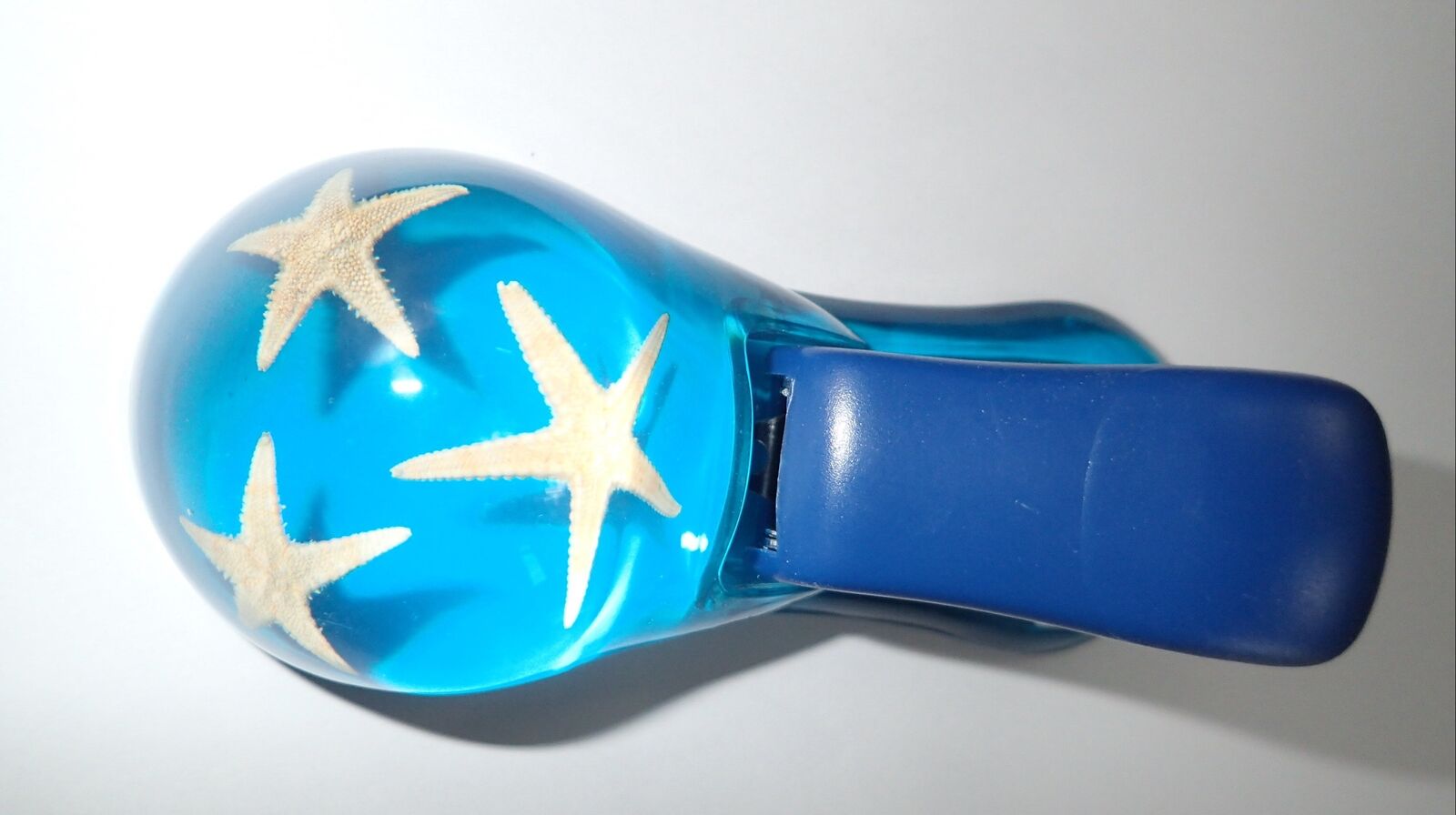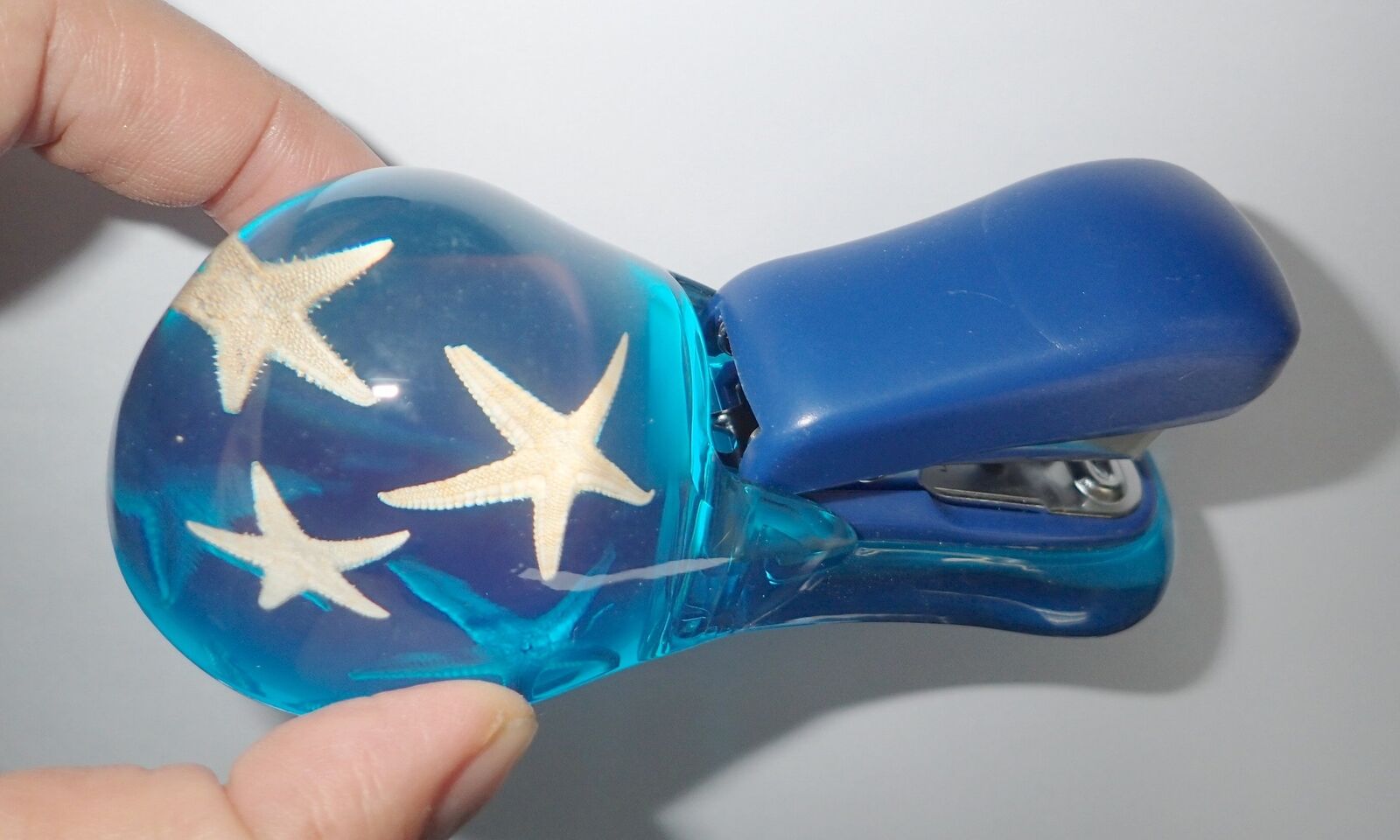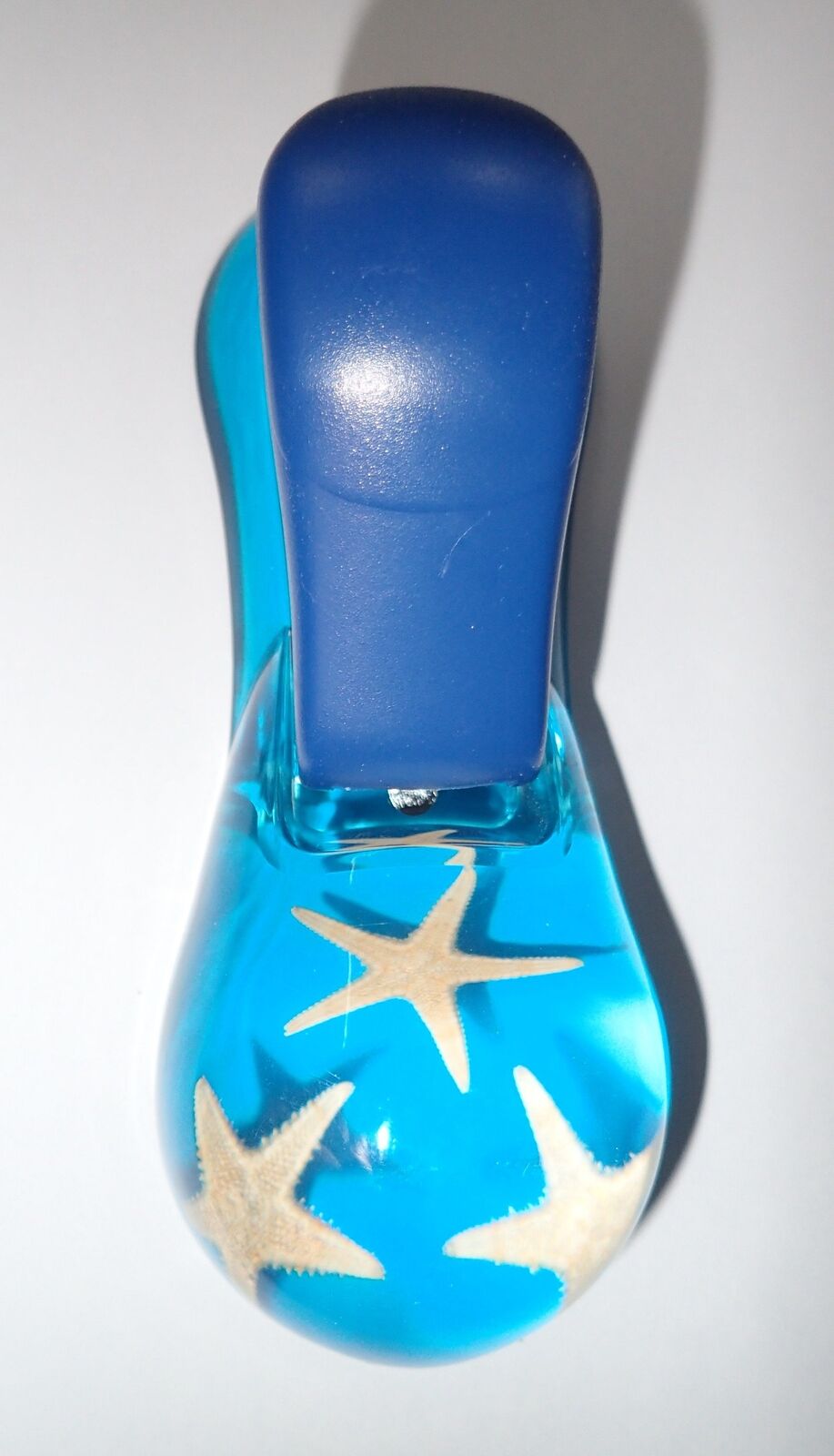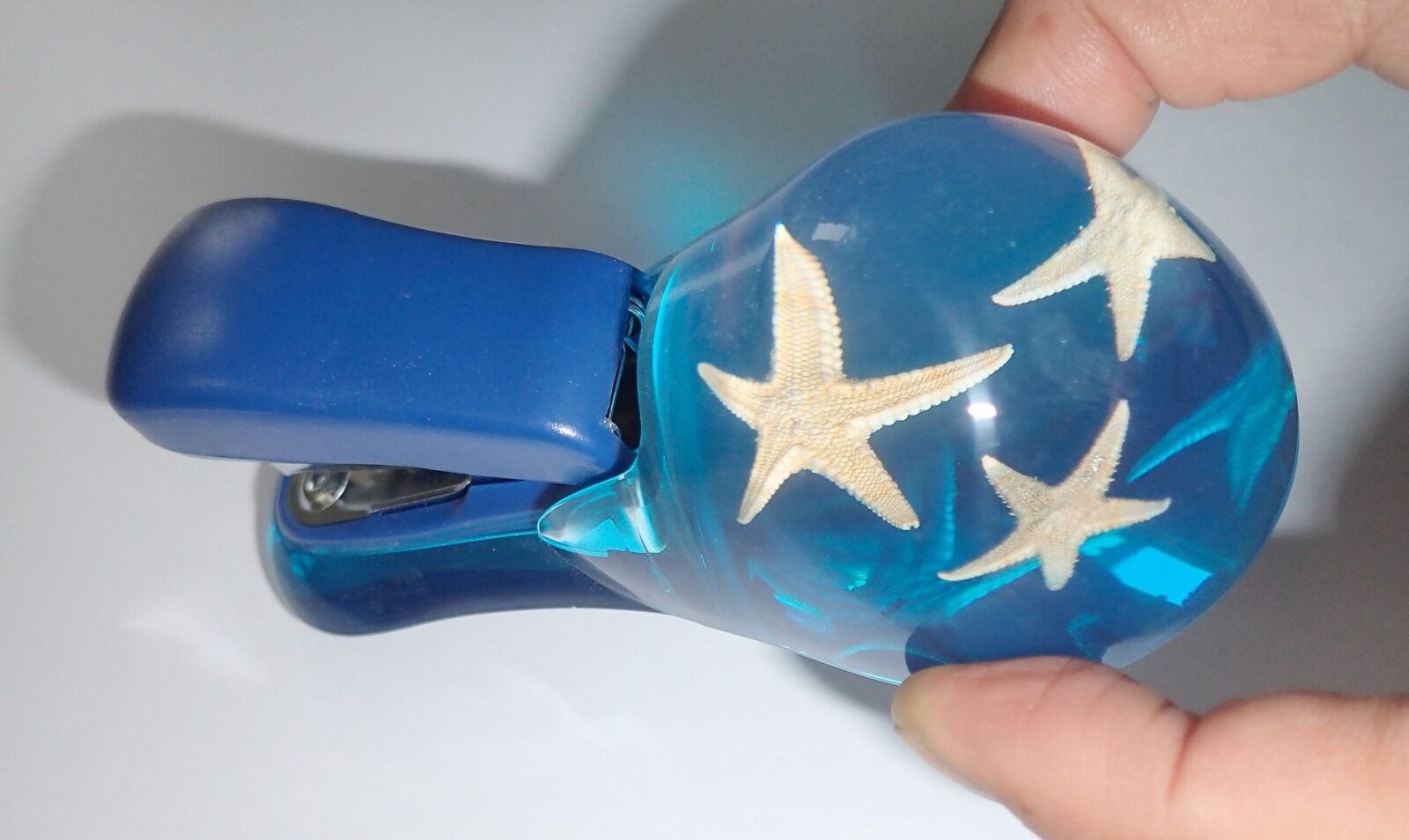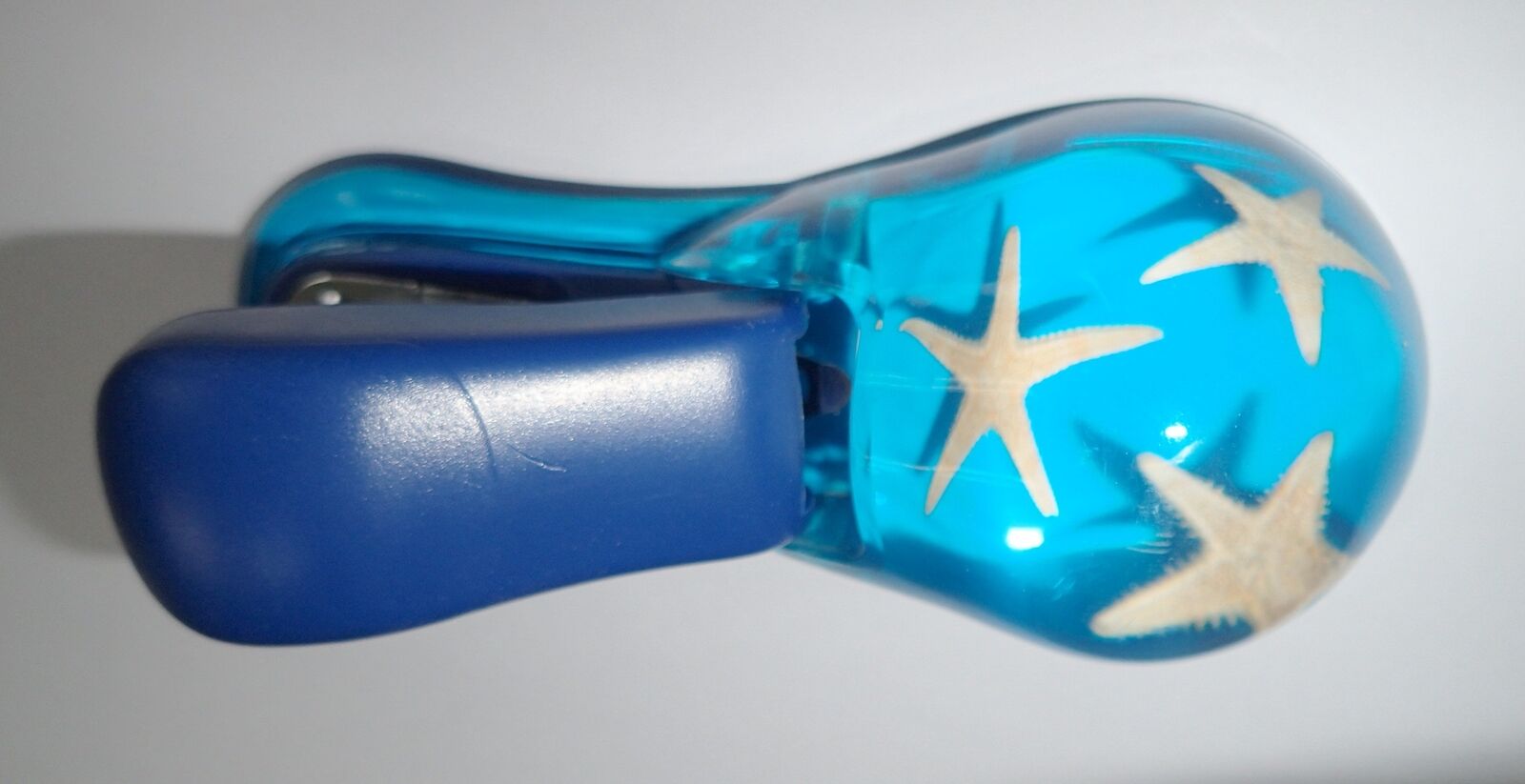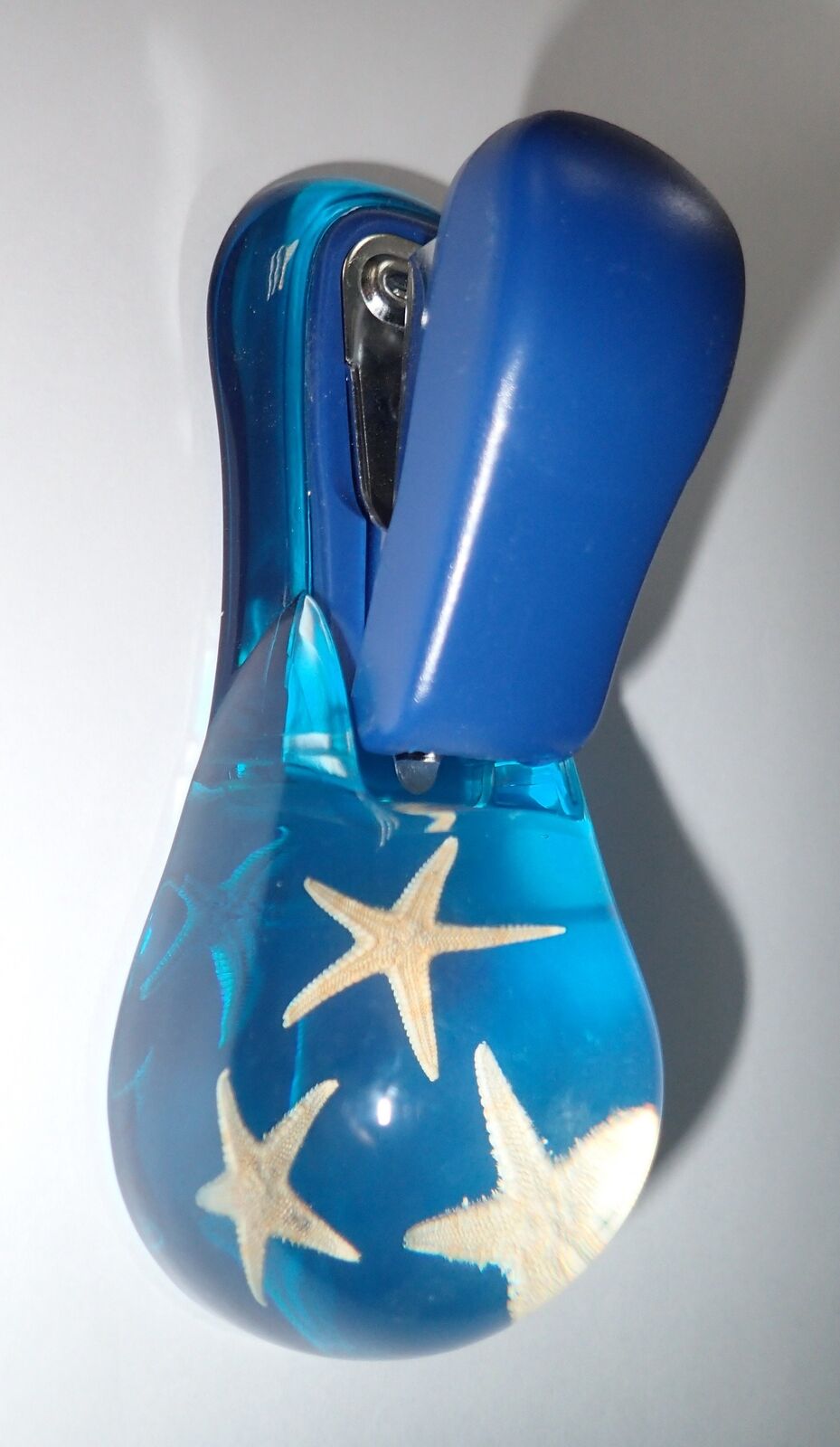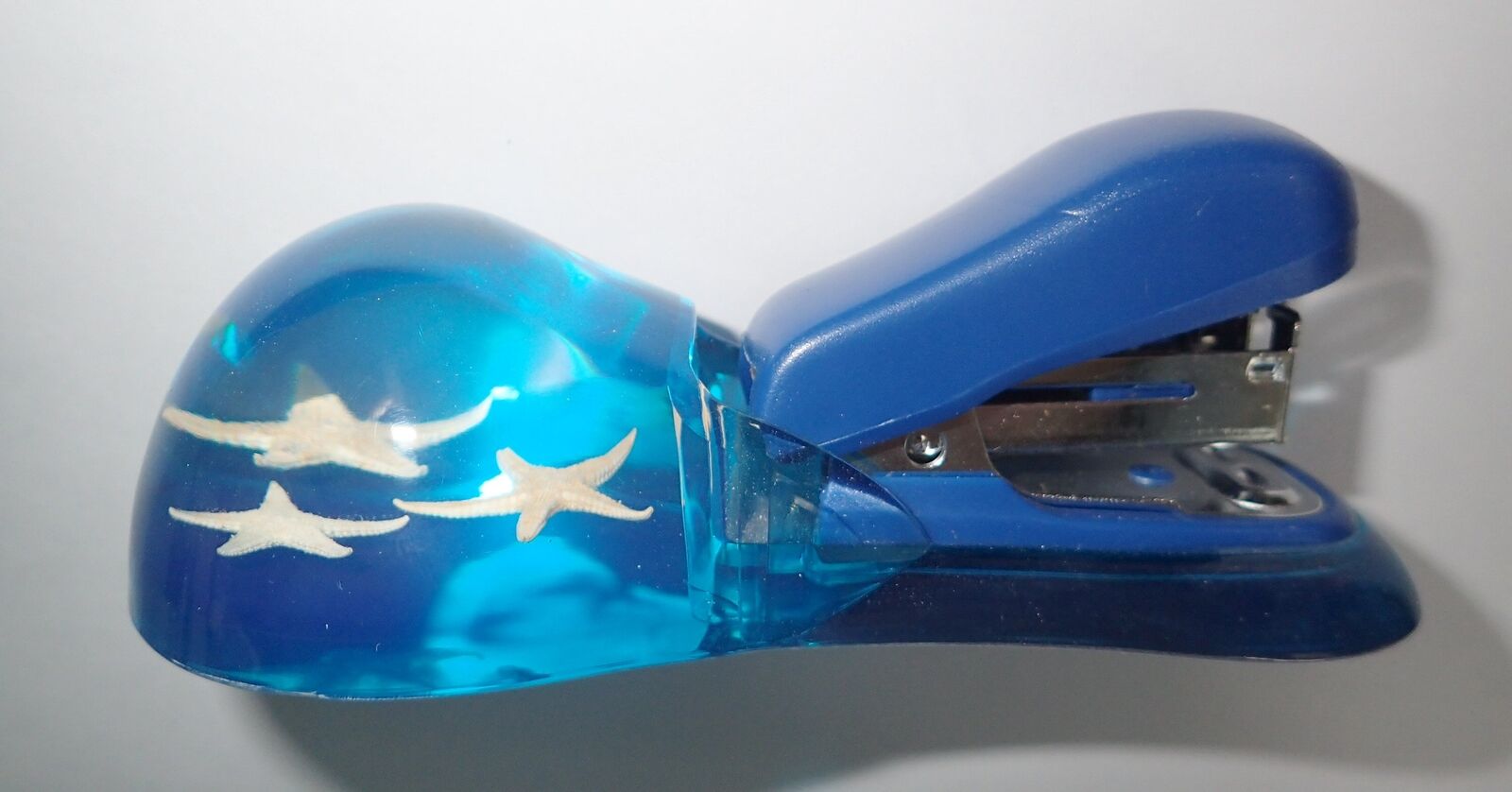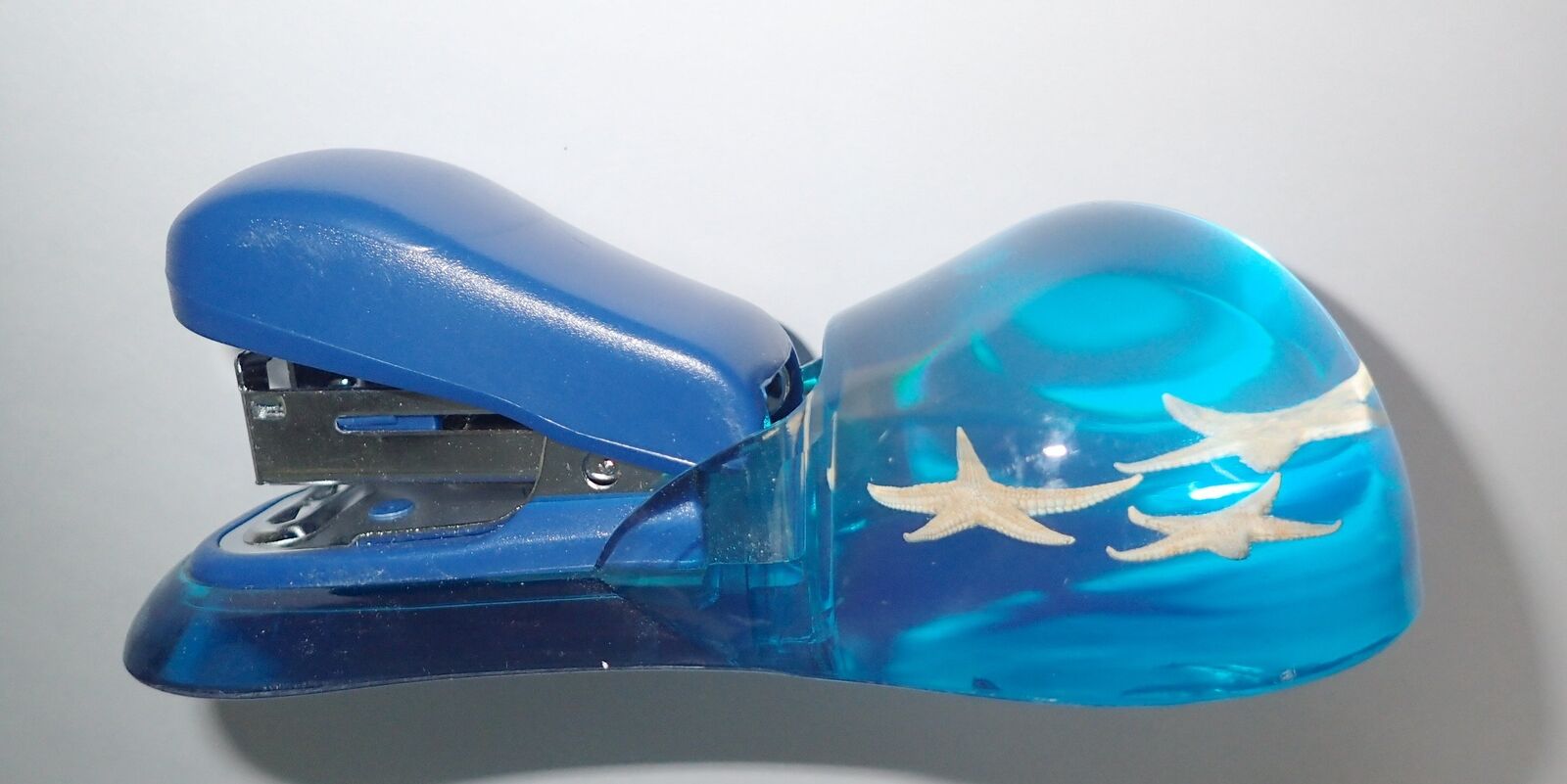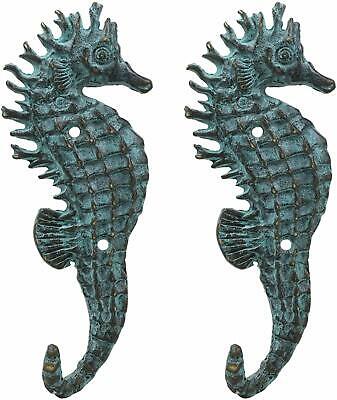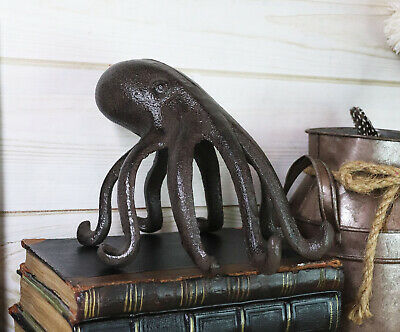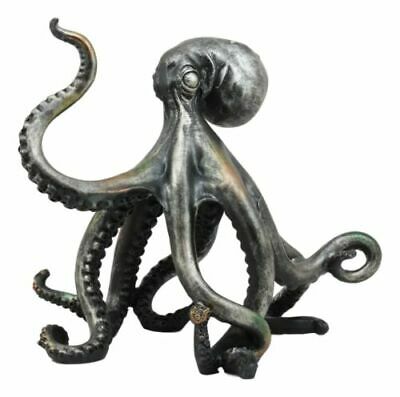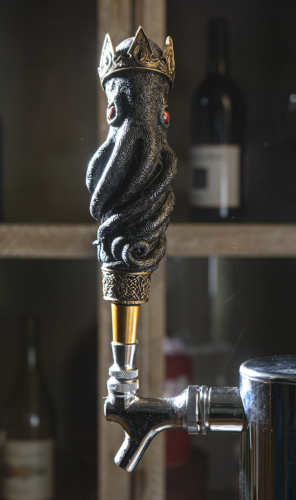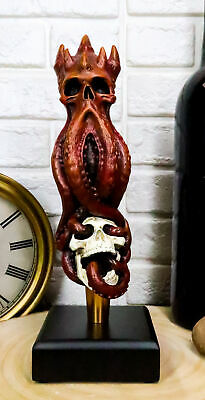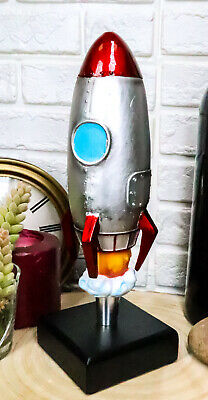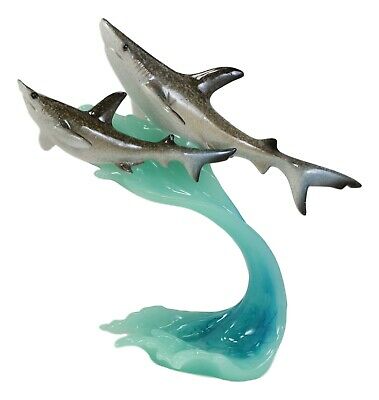-40%
Marine Animal Stapler 3 Starfish Flatbottom Seastar Specimen Clear Blue
$ 7.91
- Description
- Size Guide
Description
3 pieces of real Starfish (Flatbottom Seastar - Asterias amurensis) specimen encased in clear lucite material(lower half part of the stapler). The specimens are crystal clear, transparent and indestructible. Safe, authentic and completely unbreakable product put the Starfish right at your fingertips!Anyone can safely explore the Starfish from every angle.
Size of each Starfish is 1.8 cm (0.9 inch).
Size of the arcylic part is 6.0 x 5.5 x 3.5 cm (2.4x2.2x1.4 inch).
Size of the whole Stapler is 13 x 5.5 x 4.7 cm(3.9x2.4x1.9 inch).
Weight of the Stapler is 140 g (0.3 pound) and 170 g (0.4 pound) with packing box.
Selltotheworld
From all around the world
Marine Animal Stapler 3 Starfish Flatbottom Seastar Specimen Clear Blue
3 pieces
of real
Starfish (
Flatbottom Seastar -
Asterias amurensis
)
specimen encased in clear lucite material(lower half part of the stapler). The specimens are crystal clear, transparent and indestructible. Safe, authentic and completely unbreakable product put the Starfish right at your fingertips!
Anyone can safely explore the Starfish from every angle.
Size of each Starfish is 1.8 cm (0.9 inch).
Size of the arcylic part is 6.0 x 5.5 x 3.5 cm (2.4x2.2x1.4 inch).
Size of the whole Stapler is 13 x 5.5 x 4.7 cm(3.9x2.4x1.9 inch).
Weight of the Stapler is 140 g (0.3 pound) and 170 g (0.4 pound) with packing box.
This is a handmade real animal specimen craft. Each one will be a bit different (specimen size, color and posture) even in the same production batch.
The pictures in the listing are just for reference as we are selling multiple pieces with same pictures.
It is an ideal learning aid for students and kids and also a very good collectible item for every body.
***
Flatbottom Seastar -
Asterias amurensis
Order: Forcipulatida
Family: Asteriidae
Genus:
Asterias
Taxonomic name:
Asterias amurensis
Common names:
Flatbottom seastar, Japanese Seastar, Japanese starfish, Nordpazifischer Seestern (German), North Pacific seastar, northern Pacific seastar, purple-orange seastar
Organism type:
sea star
Originally found in far north Pacific waters and areas surrounding Japan, Russia, North China, and Korea, the northern Pacific seastar (Asterias amurensis) has successfully invaded the southern coasts of Australia and has the potential to move as far north as Sydney. The seastar will eat a wide range of prey and has the potential for ecological and economic harm in its introduced range. Because the seastar is well established and abundantly widespread, eradication is almost impossible. However, prevention and control measures are being implemented to stop the species from establishing in new waters.
Description
Asterias amurensis
(northern Pacific seastar) can grow upto 50 cm in diameter. It is yellow with red and purple pigmentation on its five arms, and a small central disk. Its distinctive characteristic is its upturned tips which are its identification key when compared to similar starfish. The undersides are completely yellow and arms are unevenly covered with small, jagged-edged spines. These spines line the groove in which the tube feet lie, and join up at the mouth in a fan-like shape.
Occurs in:
Estuarine habitats, marine habitats
Habitat description
While
Asterias amurensis
(northern Pacific seastar) prefers waters temperatures of 7-10°C, it has adapted to warmer Australian waters of 22°C. It is typically found in shallow waters of protected coasts and is not found on reefs or in areas with high wave action. The starfish is capable of tolerating many temperatures and wide ranges of salinities. It is often found in estuaries and on mud, sand or rocky sheltered areas of intertidal zones. The maximum temperature for
Asterias amurensis
is 25°C and the minimum is 0°C. The salinity range for this species is between 18.7 and 41ppt, while the maximum depth at which individuals have been found is 220m.
General impacts
Asterias amurensis
(northern Pacific seastar) has the potential to establish large populations in new areas. Estimates made in Port Philip Bay (where they were first detected), indicate that numbers reached as much as 12 million individuals in two years. In their native range they are known to go through 'bust and boom' cycles reaching high abundance and then rapid decline.
The northern Pacific seastar is a voracious feeder, preferring mussels, scallops and clams. It will eat almost anything it can find, including dead fish and fish waste. The seastar is considered a serious pest of native marine organisms. The seastar is also considered a mariculture pest, settling on scallop longlines, spat bags, mussel and oyster lines and salmon cages.
In Japan seastar outbreaks cost the mariculture industry millions of dollars.
Uses
No valuable human use has been documented. Hunting incentives have been suggested, such as catching and drying as souvenirs.
Geographical range
Native range
: Native to Japan, North China, Korea, Russia, and far North Pacific waters.
Local dispersal methods
Water currents:
Asterias amurensis
(northern Pacific seastar) larvae are transported in water currents.
Nutrition
Asterias amurensis
(northern Pacific seastar) eats bivalves, gastropod molluscs, barnacles, crabs, crustaceans, worms, echinoderms, ascidians, sea urchins, sea squirts and other seastars, including conspecifics if food source becomes exhausted.
Reproduction
Asterias amurensis
(northern Pacific seastar) reproduces sexually and asexually. Spawning occurs between July and October in Australian waters . The female seastar is capable of carrying up to 20 million eggs. Fertilisation is external and larvae remains in a planktonic stage for up to 120 days before settling and metamorphosing into juvenile starfish. Sperm half life at 10°C > 2 hours, at 17°C < 30 minutes.
Lifecycle stages
Juvenile
Asterias amurensis
(northern Pacific seastars) grow up to 6mm per month in the first year and continue to grow 1 - 2mm per month until maturity. The female is able to reproduce at about 12 months of age, when they are around 10cm in diameter.
This species has been nominated as among 100 of the "World's Worst" invaders.
Item Specifics
Material :
Resin
Type :
Ornament
Country of Manufacture :
China
Country/Region of Manufacture :
China
Modified Item :
No
Payment
By Paypal
Shipping
Free shipping cost.
We send the goods to USA, Canada, UK, Australia, New Zealand, EU countries and some other European and Asian countries by E-express, a kind of fast postal service by Hong Kong Post. It usually takes about 6 to 10 working days for delivery.
We send the goods to other countries by registered airmail and will take about 8 to 14 working days for delivery.
Returns
Returns: We accept returns with any reason in 30 days.
Contact Us
We will answer buyer messages within 24 hours during working days.
Selltotheworld
From all around the world
DESCRIPTION
PAYMENT
SHIPPING
RETURN POLICY
CONTACT US
Marine Animal Stapler 3 Starfish Flatbottom Seastar Specimen Clear Blue
3 pieces
of real
Starfish (
Flatbottom Seastar -
Asterias amurensis
)
specimen encased in clear lucite material(lower half part of the stapler). The specimens are crystal clear, transparent and indestructible. Safe, authentic and completely unbreakable product put the Starfish right at your fingertips!
Anyone can safely explore the Starfish from every angle.
Size of each Starfish is 1.8 cm (0.9 inch).
Size of the arcylic part is 6.0 x 5.5 x 3.5 cm (2.4x2.2x1.4 inch).
Size of the whole Stapler is 13 x 5.5 x 4.7 cm(3.9x2.4x1.9 inch).
Weight of the Stapler is 140 g (0.3 pound) and 170 g (0.4 pound) with packing box.
This is a handmade real animal specimen craft. Each one will be a bit different (specimen size, color and posture) even in the same production batch.
The pictures in the listing are just for reference as we are selling multiple pieces with same pictures.
It is an ideal learning aid for students and kids and also a very good collectible item for every body.
***
Flatbottom Seastar -
Asterias amurensis
Order: Forcipulatida
Family: Asteriidae
Genus:
Asterias
Taxonomic name:
Asterias amurensis
Common names:
Flatbottom seastar, Japanese Seastar, Japanese starfish, Nordpazifischer Seestern (German), North Pacific seastar, northern Pacific seastar, purple-orange seastar
Organism type:
sea star
Originally found in far north Pacific waters and areas surrounding Japan, Russia, North China, and Korea, the northern Pacific seastar (Asterias amurensis) has successfully invaded the southern coasts of Australia and has the potential to move as far north as Sydney. The seastar will eat a wide range of prey and has the potential for ecological and economic harm in its introduced range. Because the seastar is well established and abundantly widespread, eradication is almost impossible. However, prevention and control measures are being implemented to stop the species from establishing in new waters.
Description
Asterias amurensis
(northern Pacific seastar) can grow upto 50 cm in diameter. It is yellow with red and purple pigmentation on its five arms, and a small central disk. Its distinctive characteristic is its upturned tips which are its identification key when compared to similar starfish. The undersides are completely yellow and arms are unevenly covered with small, jagged-edged spines. These spines line the groove in which the tube feet lie, and join up at the mouth in a fan-like shape.
Occurs in:
Estuarine habitats, marine habitats
Habitat description
While
Asterias amurensis
(northern Pacific seastar) prefers waters temperatures of 7-10°C, it has adapted to warmer Australian waters of 22°C. It is typically found in shallow waters of protected coasts and is not found on reefs or in areas with high wave action. The starfish is capable of tolerating many temperatures and wide ranges of salinities. It is often found in estuaries and on mud, sand or rocky sheltered areas of intertidal zones. The maximum temperature for
Asterias amurensis
is 25°C and the minimum is 0°C. The salinity range for this species is between 18.7 and 41ppt, while the maximum depth at which individuals have been found is 220m.
General impacts
Asterias amurensis
(northern Pacific seastar) has the potential to establish large populations in new areas. Estimates made in Port Philip Bay (where they were first detected), indicate that numbers reached as much as 12 million individuals in two years. In their native range they are known to go through 'bust and boom' cycles reaching high abundance and then rapid decline.
The northern Pacific seastar is a voracious feeder, preferring mussels, scallops and clams. It will eat almost anything it can find, including dead fish and fish waste. The seastar is considered a serious pest of native marine organisms. The seastar is also considered a mariculture pest, settling on scallop longlines, spat bags, mussel and oyster lines and salmon cages.
In Japan seastar outbreaks cost the mariculture industry millions of dollars.
Uses
No valuable human use has been documented. Hunting incentives have been suggested, such as catching and drying as souvenirs.
Geographical range
Native range
: Native to Japan, North China, Korea, Russia, and far North Pacific waters.
Local dispersal methods
Water currents:
Asterias amurensis
(northern Pacific seastar) larvae are transported in water currents.
Nutrition
Asterias amurensis
(northern Pacific seastar) eats bivalves, gastropod molluscs, barnacles, crabs, crustaceans, worms, echinoderms, ascidians, sea urchins, sea squirts and other seastars, including conspecifics if food source becomes exhausted.
Reproduction
Asterias amurensis
(northern Pacific seastar) reproduces sexually and asexually. Spawning occurs between July and October in Australian waters . The female seastar is capable of carrying up to 20 million eggs. Fertilisation is external and larvae remains in a planktonic stage for up to 120 days before settling and metamorphosing into juvenile starfish. Sperm half life at 10°C > 2 hours, at 17°C < 30 minutes.
Lifecycle stages
Juvenile
Asterias amurensis
(northern Pacific seastars) grow up to 6mm per month in the first year and continue to grow 1 - 2mm per month until maturity. The female is able to reproduce at about 12 months of age, when they are around 10cm in diameter.
This species has been nominated as among 100 of the "World's Worst" invaders.
Item Specifics
Material :
Resin
Type :
Ornament
Country of Manufacture :
China
Country/Region of Manufacture :
China
Modified Item :
No
Payment
By Paypal
Shipping
Free shipping cost.
We send the goods to USA, Canada, UK, Australia, New Zealand, EU countries and some other European and Asian countries by E-express, a kind of fast postal service by Hong Kong Post. It usually takes about 6 to 10 working days for delivery.
We send the goods to other countries by registered airmail and will take about 8 to 14 working days for delivery.
Returns
Returns: We accept returns with any reason in 30 days.
Contact Us
We will answer buyer messages within 24 hours during working days.
All right reserved.
Shop Category
Store Home
Fossils
◈ Insects
◈ Plants
◈ Trilobite
◈ Sea animals
Tektite
◈ Loose lots
◈ Single stone
◈ Silver wired pendant
◈ Tiktite hanger
Lapis Lazuli
▷ Polished stones
♢ Loose lots
♢ Single stones
▷ Rough stones
♢ Loose lots
♢ Single stone
◈ Craft items
Turquoise
◈ Natural turquoise
◈ Turquoise substitutes
Stone carving
Rough Stone & mineral
◈ Single piece
◈ Loose lots
Polished Stone & mineral
◈ Single piece
◈ Loose lots
Rough ruby & sapphire
◈ Ruby
◈ Sapphire
Star Ruby & Sapphire
◈ Star Ruby - Opaque
◈ Star Ruby - Transparent
◈ Blue Star Sapphire
◈ Star Sapphire - other colors
Animal specimen items
◈ Life cycle
◈ Collection set
◈ Key ring
◈ Bracelet or bangle
◈ Necklace or pendant
◈ Magnet
◈ Ring
◈ Hanger
◈ Cabochon
◈ Sphere, ball
◈ Laminated specimen
◈ Computer mouse
◈ Stapler
◈ Pen
◈ Bottle Opener
◈ Dome paperweight
◈ Earring
◈ Skeleton
◈ Fish
▷ Single specimens
♢ Spider
♢ Scorpion
♢ Beetle
♢ Marine animal
♢ Bug
♢ Bee, wasp, hornet
♢ Other insects
♢ Bat
♢ Other animal
▷ Butterfly
♢ Butterfly paperweight
♢ Laminated butterfly
Plant specimen
◈ Flower
◈ Leaf
◈ Life Cycle
◈ Collection Set
◈ Laminated items
◈ Seed or root
Stone, mineral, fossil box set
Jewelry crafts
Paper cuts
◈ Small set
◈ Large set
◈ Single piece
Other
Hot Item
10 Mohs Scale Stone Set clear plastic box Learning Real Specimen Kit
USD 20.00
Chinese Water Snake Skeleton in 110x45x18 mm Block Education Animal Specimen
USD 35.00
Black Indochinite Tektite Stone 10 pieces Plastic Box Set Natural Specimen Kit
USD 18.00
Spotted Lanternfly Cicada Life Cycle Simplified Set Real Specimen Learning Aid
USD 18.00
Insect Cabochon Golden Scorpion Oval 18x25 mm on black bottom 5 pieces Lot
USD 17.00
Picture
New List Item
8 Natural Material Collection Set Clear Lucite Block Education Specimen Kit
USD 24.99
Handmade Paper Cuts Longlife Immortal # B Large Colorful Single Piece Zhou
USD 13.99
Root + Seed + Leaf + Flower 4 Labelled Plant Set in Amber Clear Lucite Block
USD 31.99
Natural Ruby Rough Stone from Tanzania 4 to 35 g small size pieces 200 gram Lot
USD 19.99
3 Boxes 10 Each Sedimentary & Metamorphic & Igneous Rock Setx4 (4 Sets 12 Boxes)
USD 119.99
Custom Item
